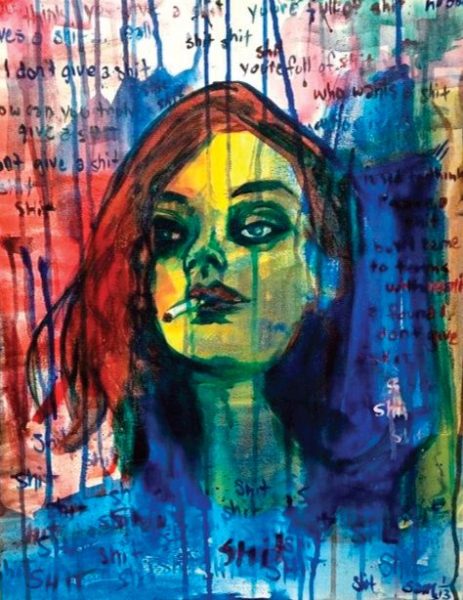Similar to the negative space in a work of art, the best “flash” fiction is often defined by what is left out as much as what is included. This story clocks in at a lean 650 words, but has the heft of a much longer story. Were there any major details that wouldn’t have affected word count much that you removed but were tempted to include? Have you thought much about fleshing this story out into a much longer work?
Not really. I initially considered going into a little more detail about the main character’s brother, but what I love about short fiction like this are all the unanswered questions. I’ve been reading David Young’s translations of Basho in Moon Woke Me Up Nine Times, and he says something about haiku in his introduction that really resonated with me:
“The practice of haiku is, after all, an art of suppressing connections and explanations in order to stimulate the imagination. The shorter the better, generally, since the brevity opens the poem to the reader’s speculative exploration and completion of it, a key factor in the poetics and aesthetics of this tradition.”
What I’m going for in this short piece is exactly that: the reader’s speculative exploration and completion of it.
This character, despite her life, is so full of hope. If she fulfills her dream to leave Plovdiv before that fateful window closes and she gets stuck there, she’ll be leaving her brother in the hands of a “no-hoper” mother that drinks too much. She seems to care a great deal for her brother. Is the fifty stotinki she puts in his hand for her luck or his?
Definitely for his. I don’t think she much believes in luck, but she knows there’s only so much she can do for her brother. Beyond that, luck is all he has.
I was curious when I got to the line “And who reads the paper these days?” I had to wonder myself. Do you read an actual paper newspaper (not online version), and if so, which one?
I don’t. Although I do enjoy reading one when I’m out at a coffee shop or at a friend’s house. There’s something about the feel of newsprint that reminds me of when I was younger and everyone I knew had the paper delivered to their homes. At one point, we were getting three papers a day!
I like that she is selling newspapers. The headlines give her a glimpse of the world outside Plovdiv, I imagined. Why selling newspapers and not some other menial task, a more undesirable occupation?
Well, you’ve got it there. That’s exactly why she sells the newspapers. Being able to get those glimpses of the outside world allows her the mental space to develop her plan to get out. When life is especially difficult, I think it’s natural to focus on the mere act of surviving—and so I consider even the fact that she is able to dream about leaving Plovdiv a sort of victory.
This character’s happiness hinges entirely on her dream, the fact that she had a plan. She doesn’t allow herself to think about the impossibilities, as long as there is still time. I couldn’t help but notice a parallel between this girl’s mentality and the feeling of an aspiring writer. Hope in the face of long odds. Do you think she ever makes it out of Plovdiv?
Well, I sure hope so—for her and for me—but the odds are certainly stacked against her. And even if she does, I doubt she’ll get much farther than Sofia. Of course, you always harbor a little bit of secret hope for the people you write about, and that’s especially true for this young woman whose optimism and generosity of spirit I really admire. If anyone can do it, she can.
After reading this piece, I am sure people will want to read more of your work. What are you currently working on?
I’ve just finished a book-length collection of short pieces like this. It’s called Unplace, and I’m currently looking for a publisher for it. Many of the pieces that appear in the book can be read on my Tumblr blog (unplace.tumblr.com), which I’ll continue to update with new work.



 The core workshop of SmokeLong Fitness is all in writing, so you can take part from anywhere at anytime. We are excited about creating a supportive, consistent and structured environment for flash writers to work on their craft in a community. We are thrilled and proud to say that our workshop participants have won, placed, or been listed in every major flash competition. Community works.
The core workshop of SmokeLong Fitness is all in writing, so you can take part from anywhere at anytime. We are excited about creating a supportive, consistent and structured environment for flash writers to work on their craft in a community. We are thrilled and proud to say that our workshop participants have won, placed, or been listed in every major flash competition. Community works.